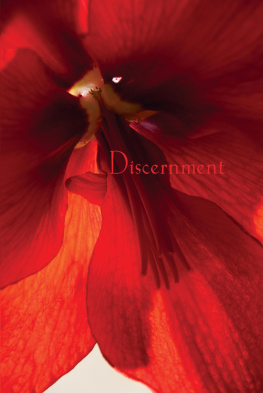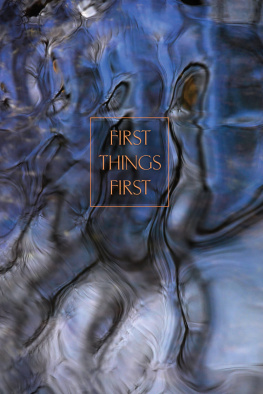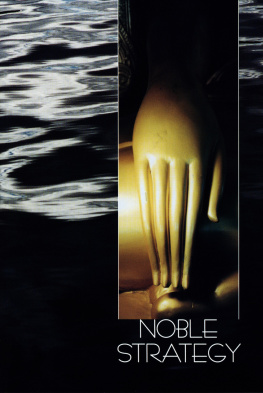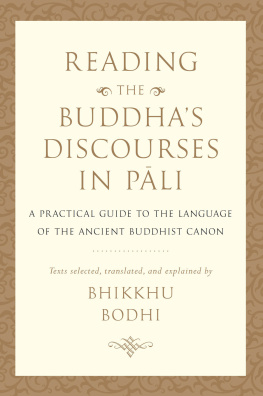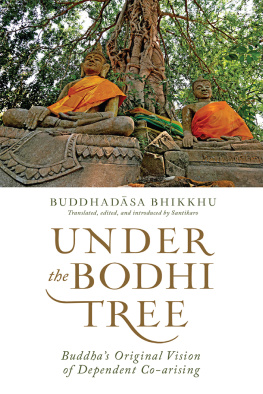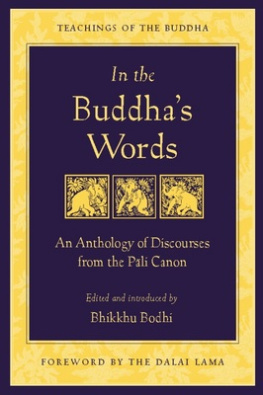Thanissaro Bhikkhu - Discernment: The Buddhas Strategies for Happiness II
Here you can read online Thanissaro Bhikkhu - Discernment: The Buddhas Strategies for Happiness II full text of the book (entire story) in english for free. Download pdf and epub, get meaning, cover and reviews about this ebook. year: 2013, publisher: Metta Forest Monastery, genre: Religion. Description of the work, (preface) as well as reviews are available. Best literature library LitArk.com created for fans of good reading and offers a wide selection of genres:
Romance novel
Science fiction
Adventure
Detective
Science
History
Home and family
Prose
Art
Politics
Computer
Non-fiction
Religion
Business
Children
Humor
Choose a favorite category and find really read worthwhile books. Enjoy immersion in the world of imagination, feel the emotions of the characters or learn something new for yourself, make an fascinating discovery.
- Book:Discernment: The Buddhas Strategies for Happiness II
- Author:
- Publisher:Metta Forest Monastery
- Genre:
- Year:2013
- Rating:4 / 5
- Favourites:Add to favourites
- Your mark:
- 80
- 1
- 2
- 3
- 4
- 5
Discernment: The Buddhas Strategies for Happiness II: summary, description and annotation
We offer to read an annotation, description, summary or preface (depends on what the author of the book "Discernment: The Buddhas Strategies for Happiness II" wrote himself). If you haven't found the necessary information about the book — write in the comments, we will try to find it.
Thanissaro Bhikkhu: author's other books
Who wrote Discernment: The Buddhas Strategies for Happiness II? Find out the surname, the name of the author of the book and a list of all author's works by series.
Discernment: The Buddhas Strategies for Happiness II — read online for free the complete book (whole text) full work
Below is the text of the book, divided by pages. System saving the place of the last page read, allows you to conveniently read the book "Discernment: The Buddhas Strategies for Happiness II" online for free, without having to search again every time where you left off. Put a bookmark, and you can go to the page where you finished reading at any time.
Font size:
Interval:
Bookmark:
Copyright 2013 Thanissaro Bhikkhu.
You may copy, reformat, reprint, republish, and redistribute this work in any medium whatsoever without the authors permission, provided that: (1) such copies, etc. are made available free of any charge; (2) any translations of this work state that they are derived herefrom; (3) any derivations of this work state that they are derived and differ herefrom; and (4) you include the full text of this license in any copies, translations or derivations of this work. Otherwise, all rights reserved.
More Dhamma talks, books and translations by Thanissaro Bhikkhu are available to download in digital audio and various ebook formats at dhammatalks.org and accesstoinsight.org.
A paperback copy of this book is available free of charge. To request one write to: Book Request, Metta Forest Monastery, PO Box 1409, Valley Center, CA 92082 USA.
Questions regarding this book may be addressed to: The Abbot, Metta Forest Monastery, PO Box 1409, Valley Center, CA 92082 USA.
This book is an introduction to the Buddhas teachings on how to use discernment to find an unending happiness. The main body of the book consists of passages selected from the Pali Canonthe earliest extant record of the Buddhas teachingsin which the Buddha and his disciples tell how to develop discernment and apply it to the search for that happiness. The purpose of this introduction is to provide context for the passages, making them more accessible to anyone who wants to put their teachings to use.
The Pali word for happiness, sukha, has many levels of meaning: everything from ease and pleasure, through happiness, and on to outright bliss. All of these meanings are relevant here. Keep in mind that when any of these words are used in this book, they all refer to the same Pali word. Ive chosen the English rendering that seems most appropriate in any given context, but if you prefer, you can replace my choice with any of the others.
The Pali word for discernment, paa, is often translated as wisdom. However, there are two connected reasons for translating it as discernment instead. The first relates to the place of paa in the Pali language. Its related to the verb pajanati, which refers to the mental act that discerns events and actions, detecting when they are distinct from one another and when they are connected as causes and effects. Pajanati also refers to the act of judging intentions by their effects and discerning subtle phenomena that are ordinarily hard to detect. Although these mental acts contain an element of wisdom, there is no appropriate English verb related to wisdom that covers all of these functions. The English verb discern, however, does cover these functions, and soto keep the connection between the verb and the noun clearit seems best to translate pajanati as discern and paa as discernment.
The second reason for translating paa as discernment relates to its role in the practice. As we will see, the Buddhas strategy for finding true happiness is to focus discernment on the processes of intentional action, to determine whether they are skillfulconducive to long-lasting happinessor not. Part of this strategy, especially at the highest stages of the practice, is to regard discernment itself as an intentional action. This helps you gauge when to foster it and when to abandon it for a higher purpose: total release. Because wisdom is hard to think of as an action, discernment seems to work better in practice as a translation for paa.
The Buddha taught that discernment begins by seeking out knowledgeable contemplativespeople who have trained their minds to gain personal experience of the highest happinessand asking them, What, when I do it, will lead to my long-term welfare and happiness? To do this demonstrates discernment in four important ways:
It shows that you know enough to ask the advice of people more experienced than you.
You realize that happiness comes from your own actions.
You realize that long-term is better than short-term.
Above all, you realize that the search for long-term happiness is the most worthy use of your discernmentthe search for true happiness is a noble pursuitand that you need discernment to do it right.
As the question makes clear, doing it right means searching for a happiness that lasts. The Buddha discovered in the course of his awakening that two kinds of happiness meet these qualifications: one thats created by your intentional actions, and one thats totally uncreated. His terms for these two types of experience are fabricated (sankhata) and unfabricated (asankhata). These two terms are central to his teachings in general, and to his instructions on happiness in particular, so its important to understand them.
The term fabrication refers both to intentional actionsmental or physicalas well as to the mental or physical conditions they shape. All experience at the sensesthe five physical senses and the mind taken as a sixth senseis fabricated through past and present intentional actions in thought, word, or deed. Past actions provide the raw material for present experience. From this raw material, your present intentionssometimes consciously, sometimes subconsciouslyselect and shape what you actually experience in the present. These present intentions also add to the range of raw material from which you will select and shape experiences in the future.
Because no intentions are constant or permanent, they cant create a constant or permanent happiness. The best they can create, when theyre trained to be skillful, is a happiness thats relatively long-lasting and harmless.
The only happiness not subject to change is unfabricated happiness, a happiness that does not depend on intentional actions for its existence. Nibbana (nirvana) is the most famous term for this happiness. It literally means unbinding or freeing. But the Buddha describes this happiness metaphorically with other terms as well. These include: peace, the deathless, exquisite, bliss, rest, the wonderful, the marvelous, security, the unafflicted, purity, the island, shelter, harbor, refuge, the ultimate.
Even though intentional actions cannot create this happiness, they can be trained to a heightened level of skill where they allow all fabricationseven themselvesto fall still, revealing the unfabricated dimension that theyve been hiding all along. A traditional metaphor for this process is the desire to go to a park. The desire doesnt cause the park to be, but its what gets you there. Once youve arrived, the desire is no longer needed and so falls away on its own [].
The most skillful use of discernment, of course, is to pursue unfabricated happiness. But this doesnt mean that fabricated happiness has no value on the path. The Buddha gave detailed instructions on how to use discernment in pursuing long-term happiness of both sorts. The skills needed for long-term fabricated happiness he taught under the term, acts of merit because they produce happiness while causing no one any harm. These acts include generosity, virtue, and the development of universal goodwill. I have already provided a detailed account of these skills in the companion to this book, the study guide named Merit. Here I will provide a short account of what the pursuit of merit and the pursuit of nibbana have in common and where they part ways. Their common features are important, for the pursuit of merit gives preliminary training to discernment in many of the more difficult skills needed to succeed in the pursuit of nibbana. However, their differences are also important, for the pleasant results of meritorious actions can be so satisfying that they can interfere with the desire to go further. When this happens, the Buddha terms the pursuit of merit ignoble []. This is why discernment needs further training in realizing the drawbacks of fabricated happiness so that it will be motivated to search for something even more satisfying and reliable, something truly noble and worthwhile.
Font size:
Interval:
Bookmark:
Similar books «Discernment: The Buddhas Strategies for Happiness II»
Look at similar books to Discernment: The Buddhas Strategies for Happiness II. We have selected literature similar in name and meaning in the hope of providing readers with more options to find new, interesting, not yet read works.
Discussion, reviews of the book Discernment: The Buddhas Strategies for Happiness II and just readers' own opinions. Leave your comments, write what you think about the work, its meaning or the main characters. Specify what exactly you liked and what you didn't like, and why you think so.

